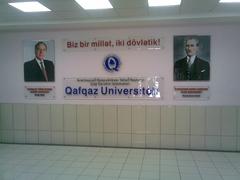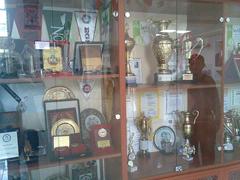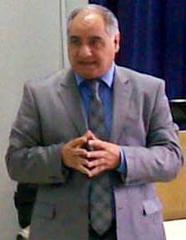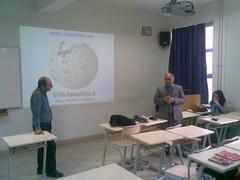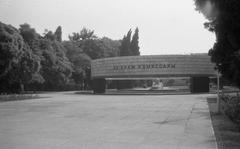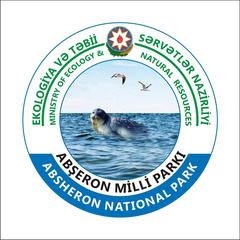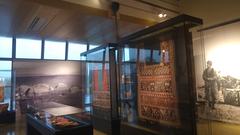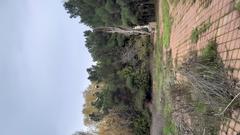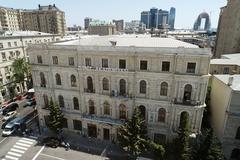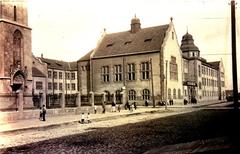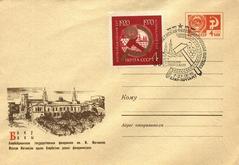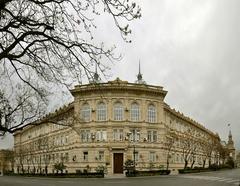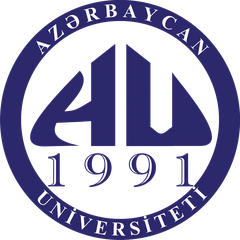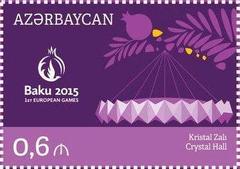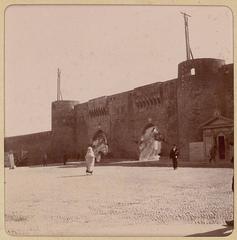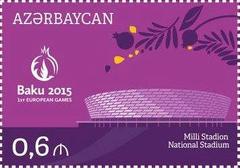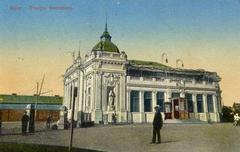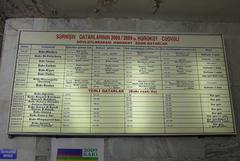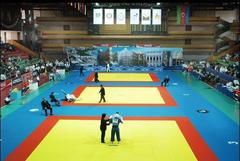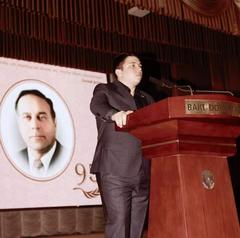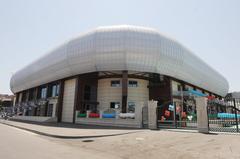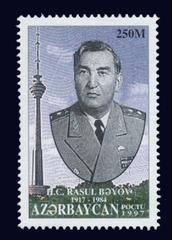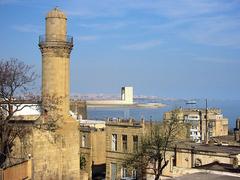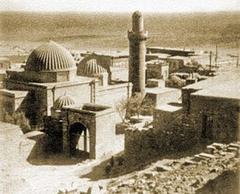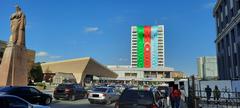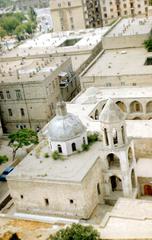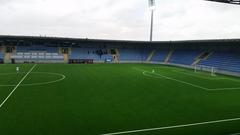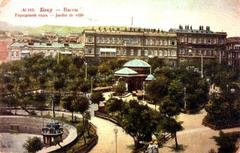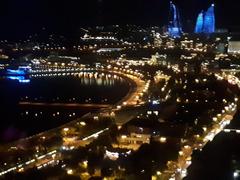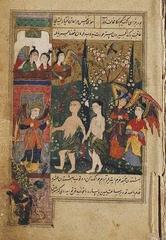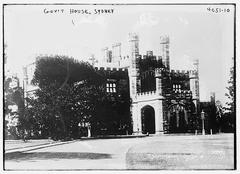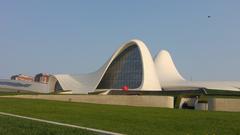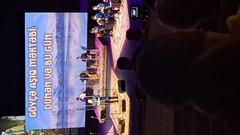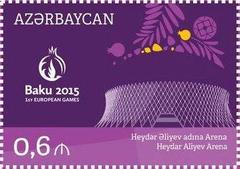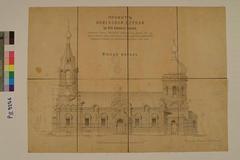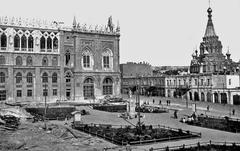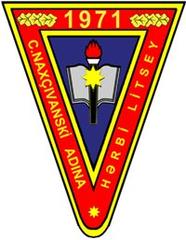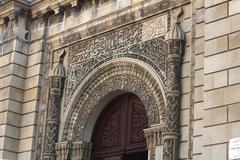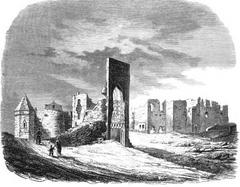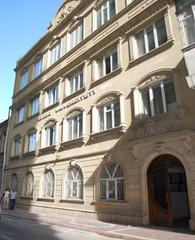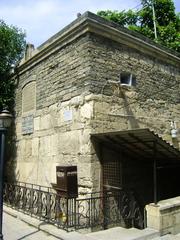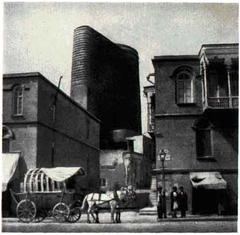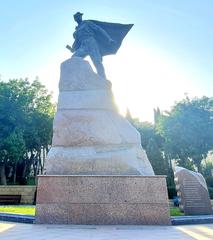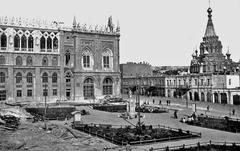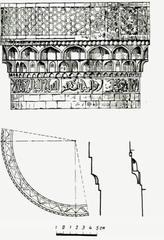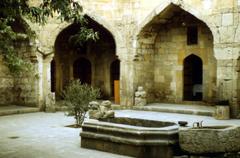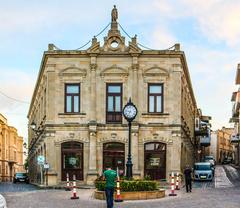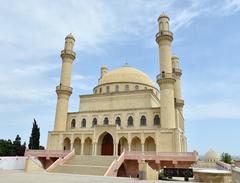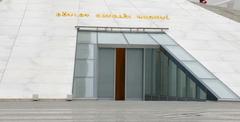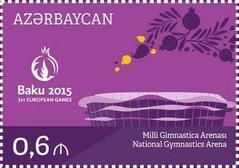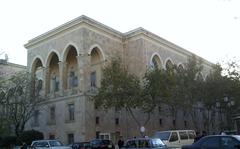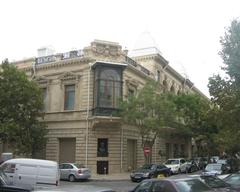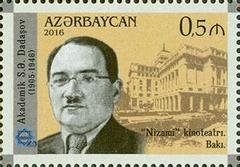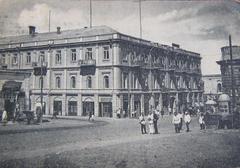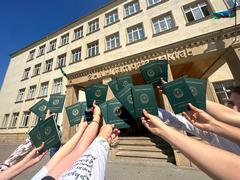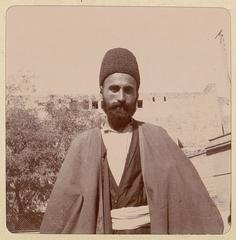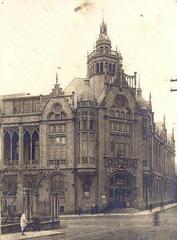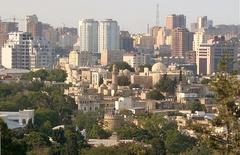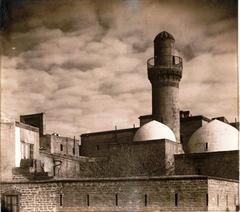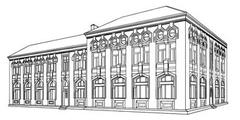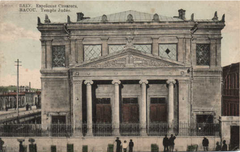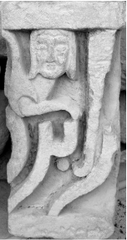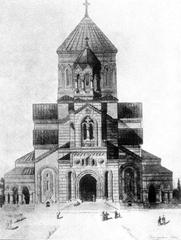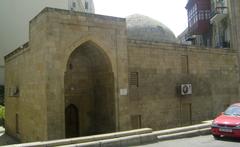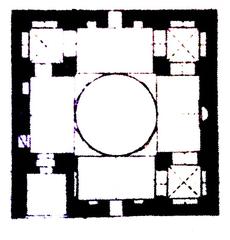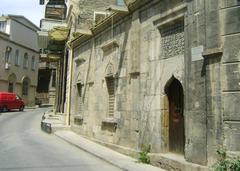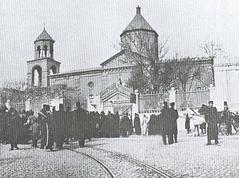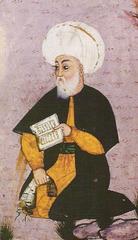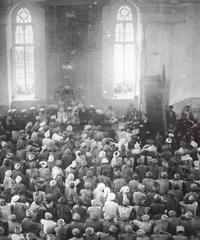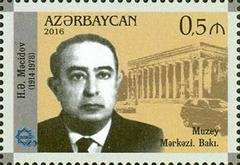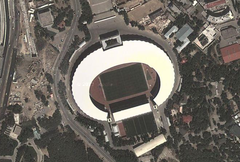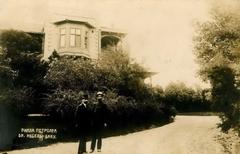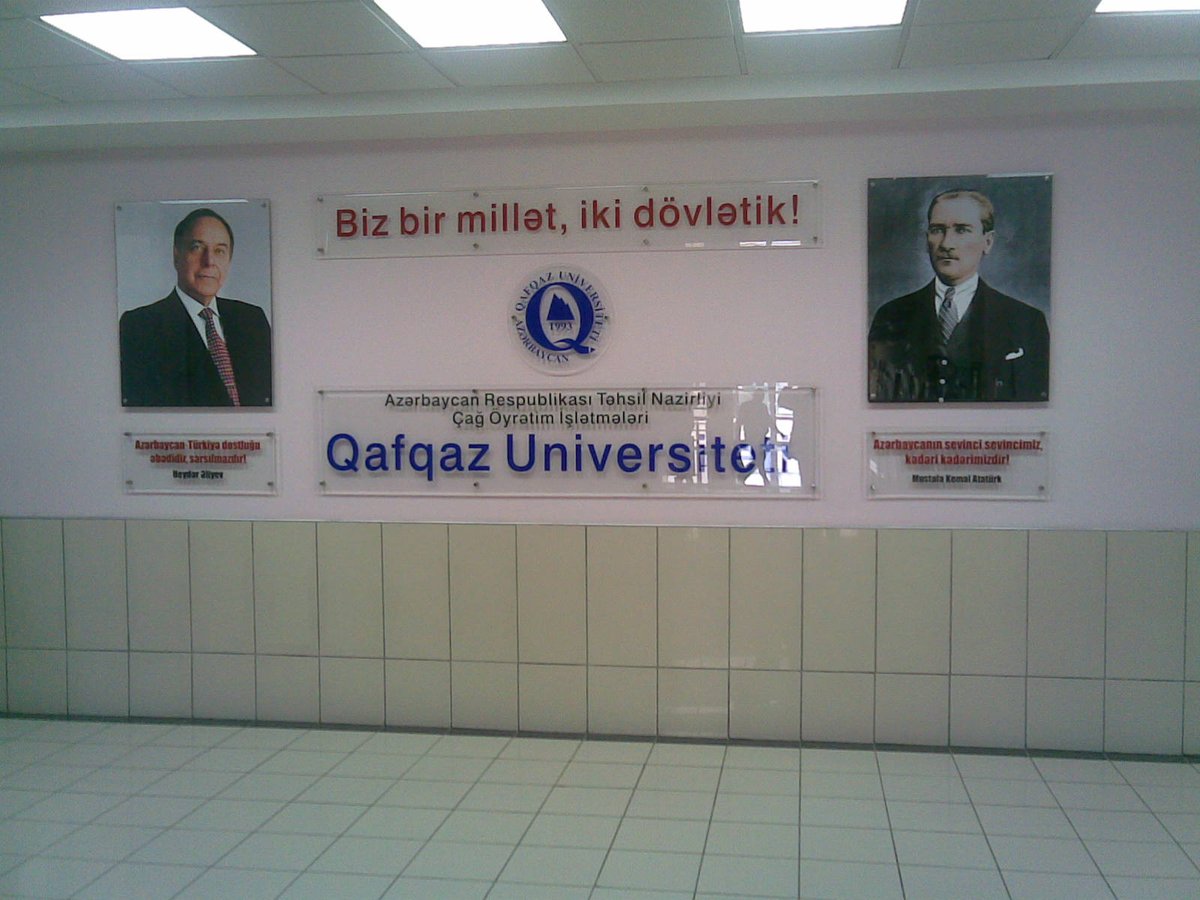
Qafqaz University Visiting Hours, Tickets, and Travel Guide: Discover Baku’s Educational and Historical Landmark
Date: 14/06/2025
Introduction
Qafqaz University, established in 1993 near Baku, Azerbaijan, holds a significant place in the nation’s educational and cultural evolution. As the first foreign private university in Azerbaijan, it was founded through cooperation between Azerbaijani authorities and Turkish educational foundations, aiming to modernize local higher education by blending Turkish and Western academic models. Although the university officially ceased operations in 2017, its legacy lives on—its campus now houses Baku Engineering University and continues to be a point of interest for academic tourists and cultural explorers.
This guide provides in-depth information on the university’s history, visitor access, practical travel tips, and nearby attractions. Whether you’re an academic, a traveler seeking insight into Azerbaijan’s development, or simply interested in unique landmarks, this resource will help you plan a memorable visit.
For up-to-date details, refer to official and tourism websites, including the Baku Engineering University official website and the Azerbaijan Tourism portal (Azernews, alluniversity.info).
Contents
- Qafqaz University: Historical Overview
- Academic Achievements and International Impact
- Role in Social and Cultural Development
- Innovation and Research at Qafqaz University
- International Partnerships and Exchanges
- Practical Visitor Information
- Location & Accessibility
- Visiting Hours & Entry Policies
- Guided Tours & Visitor Facilities
- Architectural and Cultural Significance
- Nearby Attractions in Baku and Khirdalan
- Safety, Language, and Accessibility
- Dining, Accommodation, and Transportation
- Frequently Asked Questions (FAQs)
- Further Resources and Useful Links
Qafqaz University: Historical Overview
Qafqaz University (Azerbaijani: Qafqaz Universiteti, meaning “Caucasus University”) opened in 1993, marking a watershed moment in Azerbaijan’s post-Soviet educational reform. Its founding mission was to bridge educational ties with Turkey and foster international standards in higher learning.
In 2003–2004, Qafqaz University relocated to a purpose-built modern campus in Xırdalan, designed to accommodate over 2,000 students with advanced facilities, including lecture halls, laboratories, sports complexes, and student housing. It soon became a leader in introducing credit-based education systems and international language proficiency benchmarks.
Despite closing in 2017, the site’s modern infrastructure continues to support academic activity under Baku Engineering University, maintaining its legacy as a symbol of educational innovation and cross-cultural exchange (Azernews).
Academic Achievements and International Impact
Qafqaz University rapidly established a reputation for academic rigour and innovation, particularly in engineering, business, technology, and the social sciences. Its curriculum drew inspiration from Turkish and Western universities, emphasizing research, critical thinking, and practical skills. English-medium programs attracted both local and international students, and the faculty boasted global experience (alluniversity.info, elmevira.com).
The university’s alignment with international educational standards helped rank it among Azerbaijan’s top institutions by the mid-2010s. Its research output and collaborative projects contributed to the country’s emergence as a regional hub for science and innovation (alluniversity.info).
Role in Social and Cultural Development
Beyond academics, Qafqaz University played an active role in Azerbaijan’s social and cultural landscape. It hosted conferences and events on topics such as gender equality, civil society, and technological advancement, fostering dialogue among parliamentarians, educators, and students (Azernews). The university encouraged inclusive participation and community engagement, supporting broader national policies on gender and social integration.
Innovation and Research at Qafqaz University
A strong focus on research and innovation defined Qafqaz University’s mission. The institution established specialized research centres in fields such as oil and gas, IT, and business management, aligning with Azerbaijan’s strategic priorities. Faculty and students engaged in international research collaborations, furthering the university’s impact and reputation (alluniversity.info).
International Partnerships and Exchanges
Qafqaz University cultivated partnerships with universities and research institutes around the world, facilitating exchange programs and joint research initiatives. Participation in Erasmus+ and other international frameworks enabled students to study abroad and brought visiting scholars to Azerbaijan, enriching campus life and strengthening cross-cultural ties (alluniversity.info).
Practical Visitor Information
Location & Accessibility
The former Qafqaz University campus is in Xırdalan (Khirdalan), about 15 km northwest of central Baku. The address is: Baku-Sumqayit Road, 16th km, AZ0101 Baku, Azerbaijan (123university.net). Xırdalan is accessible by car, taxi, or public transport—take the Baku Metro to Koroglu Station, then transfer by bus or taxi (Wander-Lush, azerbaijan.travel).
Visiting Hours & Entry Policies
Current Status:
Since Qafqaz University closed in 2017, the campus is now used by Baku Engineering University. Public access is generally restricted and entry to buildings is not permitted without prior arrangement.
- There are no general visiting hours or ticket requirements.
- For academic or group visits, contact Baku Engineering University in advance to arrange access.
- Viewing the campus is possible from surrounding public roads and sidewalks.
Guided Tours & Visitor Facilities
- Guided Tours: Not regularly offered; possible by special arrangement for educational groups.
- Visitor Amenities: Cafes and eateries are available in Xırdalan town. On-campus facilities are reserved for university use.
- Photography: Allowed from public areas; always respect posted guidelines and security instructions.
Architectural and Cultural Significance
The campus, built in the early 2000s, features contemporary educational architecture with open green spaces and modern facilities. Qafqaz University was a hub for multicultural events, international conferences, and student festivals, symbolizing Azerbaijan’s ambitions for modernization and global engagement.
Nearby Attractions in Baku and Khirdalan
A visit to the former Qafqaz University site can be combined with:
- Baku Engineering University: A leading technical institution in Azerbaijan, open to educational visitors (University Guru).
- Khirdalan City Center: Local markets and the Khirdalan Mosque offer insight into suburban Azerbaijani life.
- Baku City Center:
- Old City (Icherisheher): UNESCO-listed, with the Maiden Tower, Shirvanshah’s Palace, and ancient city walls (Visit Azerbaijan Tourism).
- Flame Towers & Caspian Sea Boulevard: Modern landmarks with panoramic views.
- Ateshgah Fire Temple & Yanar Dag: Unique natural and historical sites within easy reach (Travel Melodies, Trip101).
Safety, Language, and Accessibility
- Safety: Khirdalan and Baku are generally safe, but standard travel precautions apply.
- Language: Azerbaijani is the primary language; some English is spoken in academic settings, but less so in suburban areas.
- Accessibility: While the campus is not open to the public, nearby attractions and roads are accessible. For those with mobility needs, Baku’s main sites offer better facilities.
Dining, Accommodation, and Transportation
- Dining: Cafes and restaurants in Xırdalan and along Baku-Sumqayit Road serve Azerbaijani and international cuisine (thetouristchecklist.com). Vegetarian and halal options are available.
- Accommodation:
- Baku city center offers a wide range of hotels.
- Limited lodging options in Khirdalan; on-campus hostels are not open to the public (smapse.com).
- Transport: Taxis and ride-hailing apps (Uber, Bolt) are the most convenient. Public buses serve Khirdalan; car rental is an option for regional exploration (againstthecompass.com).
Frequently Asked Questions (FAQs)
Q: Can I visit the Qafqaz University campus?
A: The campus is not open for public visits. Access is restricted to Baku Engineering University operations. You may view the site from public roads.
Q: Are there ticket fees or official visiting hours?
A: No, as the former university is closed to the public.
Q: Is photography allowed?
A: Photography from public streets is permitted, unless otherwise indicated by security.
Q: Are guided tours available?
A: Not regularly; special arrangements may be possible for academic groups.
Q: What are the best attractions nearby?
A: Baku Engineering University, Khirdalan City Center, Baku’s Old City, Flame Towers, and the Caspian Sea promenade.
Further Resources and Useful Links
- Azernews - Qafqaz University Initiatives
- Alluniversity.info - Qafqaz University Profile
- Baku Engineering University Official Website
- Report.az - Closure of Qafqaz University
- Azerbaijan Tourism Portal
- University Guru - Universities in Azerbaijan
- Wander-Lush - Azerbaijan Itinerary
- 123university.net - Qafqaz University Overview
Conclusion
Qafqaz University stands as a testament to Azerbaijan’s commitment to academic excellence, innovation, and international cooperation. Though it is no longer operational, the campus and its legacy offer a unique window into the nation’s modernization and educational transformation. Visitors to the area can appreciate its architectural design and reflect on its cultural impact, while also exploring the rich historical and modern attractions nearby.
For the latest updates, use resources like the Audiala app and official university and tourism websites. Engage with Qafqaz University’s story to enhance your understanding of Azerbaijan’s educational journey and vibrant cultural heritage (alluniversity.info, Report.az). Happy travels and discovery in Baku!
